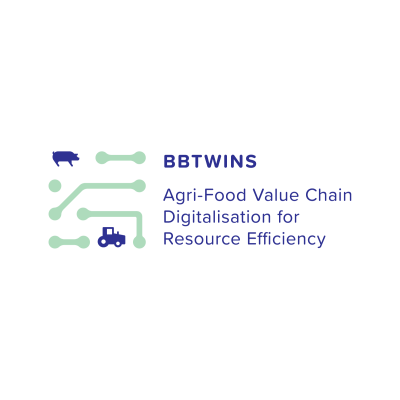
BBTWINS
Digital twins for the optimization of agrifood value chain processes and the supply of quality biomass for bio-processing

Digital twins for the optimization of agrifood value chain processes and the supply of quality biomass for bio-processing
The EU is already the largest producer of food and drink in the world. Yet as the demand for food increases – and the need for EU food security grows – the agri-food sector is under increasing pressure. Food production systems need to become more efficient and productive, delivering nutritional, healthy food in greater quantities while at the same time addressing growing public demand to minimise any environmental impacts.
The solution to this challenge will in part be found through the deployment of digital solutions. The BBTWINS project will develop and validate a digital platform based on so-called ‘digital twin’ technology; this is a real-time digital replica of a physical process that can be examined, altered and tested without it interacting with it in the real world and avoiding negative consequences. Using two use cases – meat and fruit production – it will demonstrate how to integrate, in a single value chain, both the entire agri-food value chain (from crop to final product) and the feedstocks generated at all steps.
BBTWINS will combine blockchain, artificial intelligence (AI), machine learning, the Internet of Things (IoT) and data analytics in this single platform. This platform will be able to predict the optimal pre-treatment and pathway for each feedstock under varying conditions. In so doing, it will increase the biomass available, reduce biomass losses and increase biomass storage times without impacting quality.
The overall objective of the BBTWINS project is to demonstrate the viability and effectiveness of a ‘digital twin’ approach in enhancing the performance of agri-food value chains, as well as maximising the efficiency of the feedstocks produced in the process. Within this, it will pursue a number of other societal and environmental objectives.
In addition, the BBTWINS project overall will also help boost the bio-based industries and the optimisation of agri-food value chains, as well as accelerating the digitisation of the agri-food sector.
In delivering its intended impacts, the BBTWINS project will deliver a significant advance in the use of technology in the agriculture sector, thus help pioneer the route for other value chains as a result.
In addition, it will also make contributions to specific BBI JU KPIs. It will: